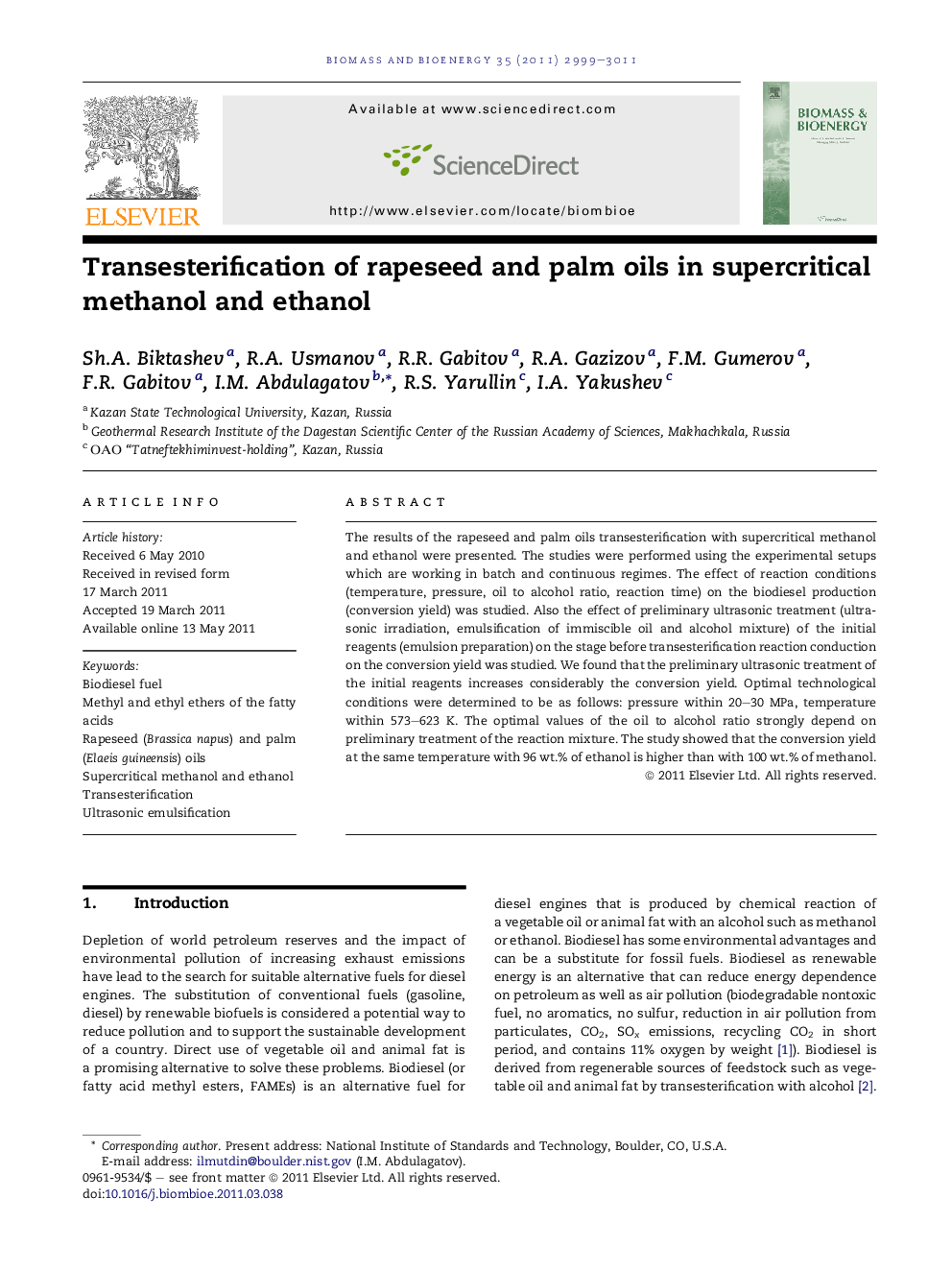| Article ID | Journal | Published Year | Pages | File Type |
|---|---|---|---|---|
| 677886 | Biomass and Bioenergy | 2011 | 13 Pages |
The results of the rapeseed and palm oils transesterification with supercritical methanol and ethanol were presented. The studies were performed using the experimental setups which are working in batch and continuous regimes. The effect of reaction conditions (temperature, pressure, oil to alcohol ratio, reaction time) on the biodiesel production (conversion yield) was studied. Also the effect of preliminary ultrasonic treatment (ultrasonic irradiation, emulsification of immiscible oil and alcohol mixture) of the initial reagents (emulsion preparation) on the stage before transesterification reaction conduction on the conversion yield was studied. We found that the preliminary ultrasonic treatment of the initial reagents increases considerably the conversion yield. Optimal technological conditions were determined to be as follows: pressure within 20–30 MPa, temperature within 573–623 K. The optimal values of the oil to alcohol ratio strongly depend on preliminary treatment of the reaction mixture. The study showed that the conversion yield at the same temperature with 96 wt.% of ethanol is higher than with 100 wt.% of methanol.
► The results of the rapeseed and palm oils transesterification with supercritical methanol and ethanol were presented. ► The effect of reaction conditions (temperature, pressure, oil to alcohol ratio, reaction time) on the biodiesel production (conversion yield) was studied. ► Transesterification of vegetable oil with supercritical alcohols. ► Effect of temperature and pressure on conversion yield. ► Preliminary ultrasonic treatment of the vegetable oil+methanol mixture.
